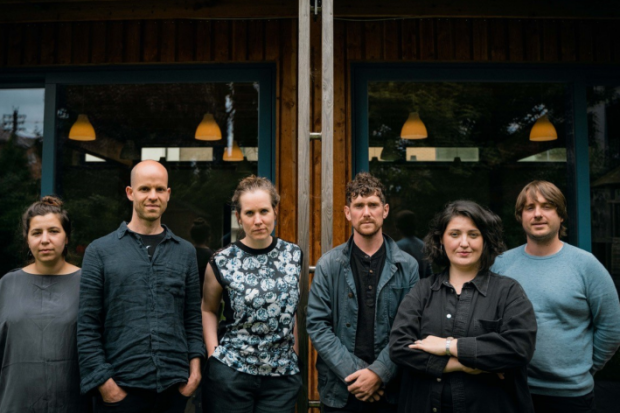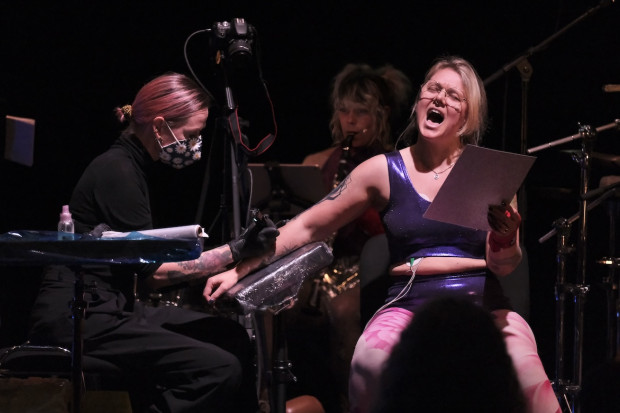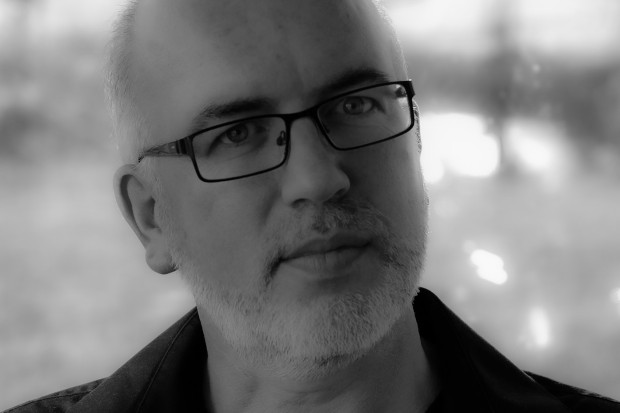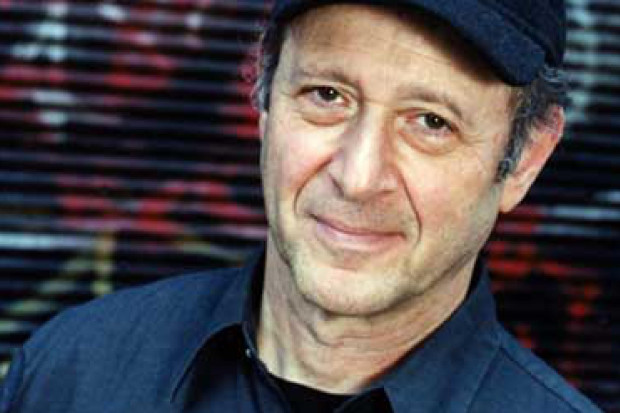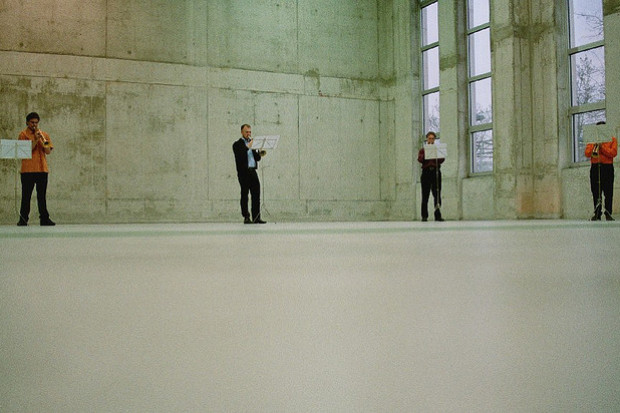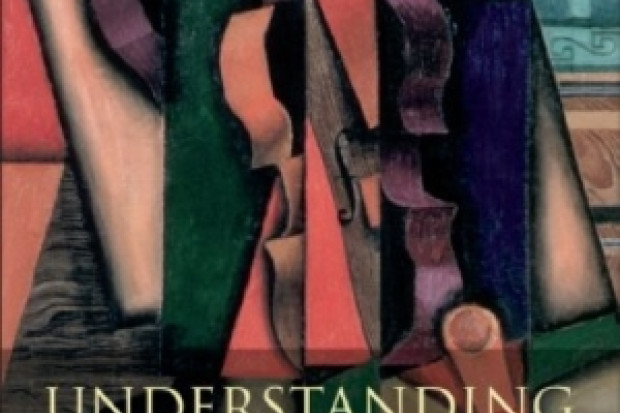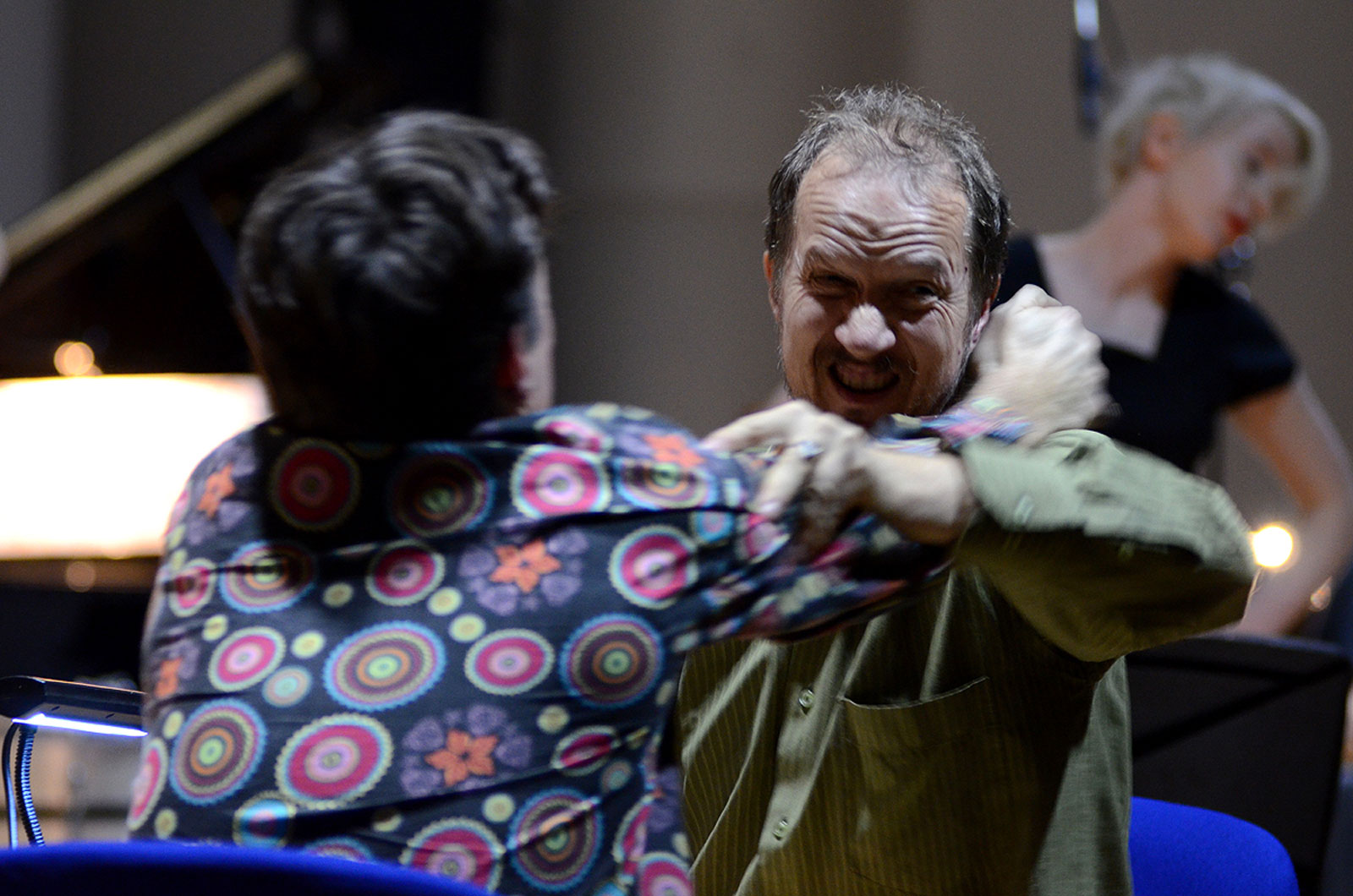
Performance Redefined
Members of ensemble]h[iatus performing music by Jennifer Walshe at the Huddersfield Contemporary Music Festival 2011. Photograph: Alex Beldea.
This year’s Huddersfield Contemporary Music Festival was typically saturating in terms of the variety of concerts.
The British composer James Saunders has for several years now been working with ostensibly non-musical objects. In Surfaces, the performer Simon Limbrick plays continuously for twenty-four hours, organising and manipulating various materials (paper, water, stone, dried corn — unfortunately I missed the eight-minute self-unfolding of a hand-scrunched plastic sheet) according to a set of Saunders’ instruction cards. The event’s duration meant that the practical requirements of preparing material was completely intertwined with the ‘performance’ of that material; a pleasant experience to see behind-the-scenes blend with performance, art with much of its artifice removed.
The From Scratch concert was a rare opportunity to hear works by experimental composers for orchestra, and in typical form they all undermined the standard orchestral sound in some way. New works by Tim Parkinson and James Saunders were most interesting, especially Saunders’ complete abandonment of instruments in favour of found objects and network dynamics. Works by Michael Parsons and Christian Wolff were more staunch in their refusal to be ‘orchestral’, using more traditionally musical material but presenting it without extravagant orchestral trappings. Jürg Frey’s new work, Louange de l’eau, louange de la lumière, with its slowly permuting chords separated by silence, was simply beautiful, and would have sat equally well alongside Cikada Ensemble’s performance of Lawrence Crane’s similarly refined music earlier that day.
The Irish composer Jennifer Walshe with ensemble]h[iatus performed three of Walshe’s pieces. In her programme note Walshe draws attention to the interdisciplinary nature of her own work. Rather than mention what other disciplines are referenced, it seems more fitting to say that this included all the things that performance can include.
In HYGIENE, multiple action roles are passed from player to player. The programme note juxtaposes the nineteenth-century German ideal of Volksgesundheit (health of the people) with the personal circumstances of August Strindberg’s paranoiac novel Inferno. Everything in HYGIENE seems locked into its own fates. The players swap roles and perform repetitive tasks (exercising, silently arguing, tapping agitatedly, wrestling). Occasionally, the group bursts into a module of sound, repetitive and mechanistic, and seemingly fatalistic, the players’ emotion circumscribed by a repetition they cannot access, and whose inevitability is draining.
Where the first piece developed inwardly in circles, the trio Thelma Mansfield (2008) mixed repetitive actions with quasi-narrative set pieces (a sing-a-long, some boxing) and taped sounds (speech, rain, TV, environment). METTA (2011) continued the theme of detachment with a song centering on soprano Géraldine Keller. The performance was vivid, with lines of text now whispered, now anxiously sung, now declaimed vigorously, and eventually just listlessly recited by the ensemble.
What subject matter there is in these pieces is never pushed on the observer; the relationships between the events onstage and the programme note are often oblique, but provide a simultaneous multiplicity of perspectives, each one poised and simple.
Published on 14 December 2011
Scott McLaughlin is an Irish composer.












